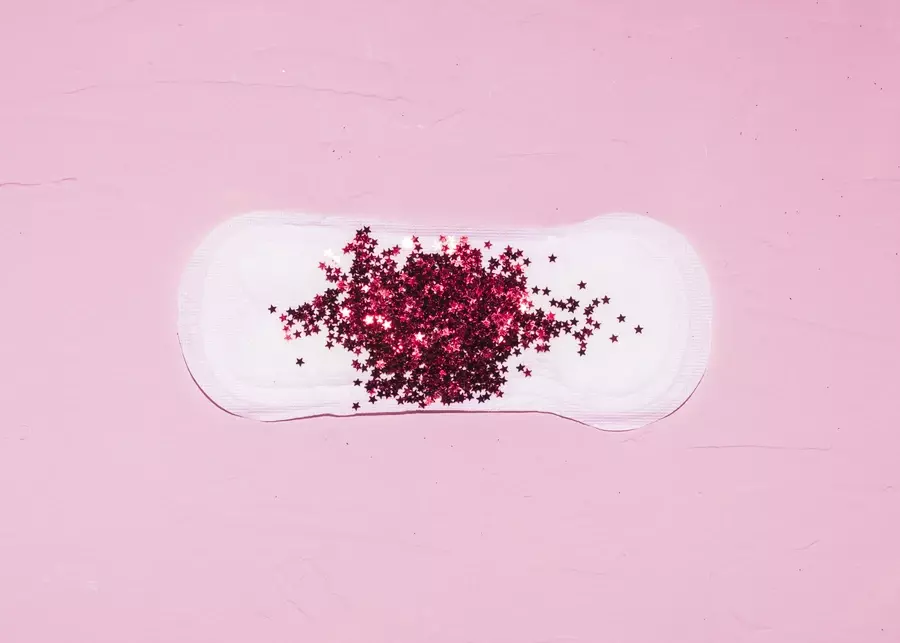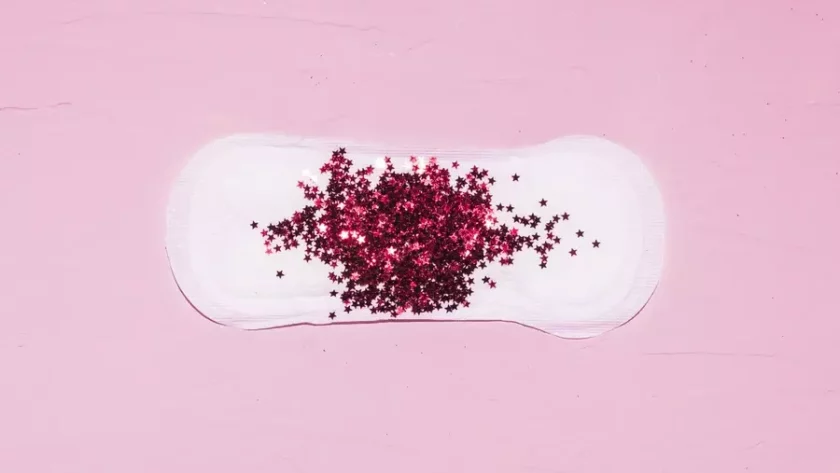Blood clot
Contents
Blood clot during periods is normal if it is not frequent and size is just as pie, if more than that not ok.
Clotting is a gel-like material of blood that forms in your veins or arteries when blood changes from liquid to partially solid.
A blood clot is a natural response of the body to prevent excessive bleeding, and stop germs from getting in when we are injured.
However, clotting can become a life-threatening situation if it travels to our other vital organs like the brain leading to stroke.
Clots also develop in the heart itself, this is called coronary artery thrombosis, due to fatty tissue that forms in the heart arteries.
If the blood clots form in a vein it is called venous thrombosis, it commonly affects the leg veins, especially the calf (1)
However, if it occurs during periods, size also matters like a nuts size is normal, and more than that may sign of health issues.
Check About – Blood Clot: Why It Form, Symptoms, Risk, And Plus More
When does a clot happen?
It starts with platelets that float around in our blood when we are injured, then collagen exposure that attracts platelets.
In response, to stop bleeding as soon, stop germs from getting in, and allow the wound to heal.
Then a soluble protein called fibrinogen is exposed to outside chemicals that turn this protein into sticky fibrin fibers.
The result, holding all the platelets together and making a much stronger clot, and all get stuck making it even stronger.
After a few days, the clot develops into a scab to protect and heal the wound, and a new layer of skin forms underneath.

Reason for a Blood clot during the periods
Every woman gets their periods on a cycle, and their cycle can take different amounts of time each month.
The regular periods can occur every 21 to 40 days and last 2 to 7 days. these can be long cycles in the first few years after menstruation.
What behind the reason for a blood clot during periods?
During periods, the endometrial cells that line the uterus strip away and leave the body.
When this happens, the body releases proteins that cause the blood in the uterus to coagulate (a fluid, especially blood) and change to a solid or semi-solid state.
This coagulation blocks the blood vessels in the lining of the uterus from bleed (9)
Also, blood that has already been shed contains these coagulation proteins.
Now, when the flow is heavy, the coagulation proteins within the blood start sticking together, resulting in period clots.
In addition, every week heavy bleeding can lead to iron deficiency due to low blood count, which also leads to low hemoglobin.
High periods of bleeding were reported by 9% of the women and the presence of clots by 54%.
Heavy bleeding not only occurs due to blood clots there are physical and hormonal factors that can also lead to heavy flow including:
- Uterine obstructions
- adenomyosis (occurs when the tissue that normally lines the uterus grows into the muscular wall of the uterus)
- cancer
- medication or illegal drugs
- perimenopause
- stress
- menopause (when the period is stopped in women for 12 months, or permanent, and it is a normal condition)
- Polyps and Fibroids
- weight loss and gain
- miscarriage
- endometriosis (tissue that normally lines the inside of your uterus the endometrium, mostly occurs in your ovaries)
- birth control pill
- thyroid
- bleeding-related disorders, such as von Willebrand disease (VWD) or platelet function disorder
- polycystic ovarian syndrome (PCOS) (is a hormonal imbalance disorder where women’s hormones are affected)
Check Out – Surprising Reasons For Irregular Periods
Is It Normal To Have Clots During Period?
Clots of blood suggest that your bleeding is heavy because natural or normal menstrual blood is a process that comes out without clotting.
So when the blood comes out the liquid from the uterus gets empty, which is normal, however, clots indicate excessive bleeding.
Blood clots only when it is excessive blood or taking time for that blood to come out.
So it signifies that you have heavy menstrual bleeding so it is not normal (3)
If it is small clots like maybe a size of a pea or a ground nut it is fine, but if it is more than that if it is of the size of a lemon or more.
Then you should definitely consult your doctor to get an ultrasound scanning done to find any medical condition.
When you should consult your doctor, if:
- Heavy flow that requires you to change your pad every hour
- a clot that is larger than a ground nut or quarter
- bleeding that occurs for 7 to 10 days
- pain or cramping than normal
Other causes of irregular periods
There are many reasons that are associated with irregular periods which included:
- Lack of vitamins and minerals in food
- do not food or healthy food
- medicines side effects
- stress, and anxiety
- consume junk food that contains lots of sugar, salt, and fat, leads to other health issues
- hormonal imbalance
- medical conditions such as – thyroid dysfunction, hyperprolactinemia, diabetes, high blood pressure, etc
Check Out – Irregular Periods in Teenage Years: Causes, Treatment, Risk
Risk of blood clots during the periods
If you experience irregular or heavy bleeding with a clot, then it could be a major risk of enhancing the other illness.
There are several health risks of blood clots during the period including:
- Anemia (where a person lacks enough healthy RBC, can lead to irregular heartbeat, and it can become a risk of a heart attack)
- fatigue
- shortness of breath
- weakness, even leading to dizziness
- yellow skin
- chest pain
Women who reported extra-period bleeding and clots in menstrual blood presented respectively a 28% and 44% increase and also reported heavy bleeding (3).
How Doctor Find It?
Diagnosing heavy bleeding is not easy, because each person might think of “heavy bleeding” in a different way.
Heavy bleeding is considered when periods occur less than 21 days or more than 35 days (1).
The irregular cycle may extend to a month or in length, and the period may be mild or heavy, painful or pain-free.
The doctor may ask you about the size of the clot, and the length of the menstrual cycle, how many days is considered your period to be heavy? etc.
Apart from this, the doctor can take some tests including:
- Blood tests
- imaging tests, like ultrasound, MRI, etc scans, which can use to see other causes of it
- pep test
- endometrial biopsy
Treatment/Prevention
The best to manage heavy bleeding with clots is to control it, however, there are medical treatments also available including:
- Hormonal balance medicine
- birth control pills
- surgery
If medication is not enough to prevent heavy bleeding, In this case, the doctor may suggest surgery (8).
How to prevent it? there are several natural ways to prevent heavy flow.
Heavy flow definitely comes once in every women’s life, which is ok, but if it occurs every month can stay for the last 8 to 10 days.
Then, in this case, you should do some work on your body to manage excessive bleeding or clot during periods including:
- Do regular exercise like yoga, running, cycling, etc
- manage stress – A study on female college students showed stress levels were allied with irregular period cycles and menstrual disorders
- avoiding excessive alcohol
- maintain weight – Research has shown reported that obese women had more irregular and longer menstrual cycles (7) (8).
- avoid smoking
- Prescribed medicines like an iron supplement fulfill your iron intake which was reduced during bleeding.
Other ways to prevent heavy bleeding or clot during menstrual naturally include:
- home remedies like ginger, cinnamon, green tea, and vitamin D3
- a healthy diet includes:
- stay hydrated
- eat iron-rich food like fish, meat, liver, and green vegetables like spinach, sweet potatoes, strawberries, watermelon, etc.
NOTE: Ways To Convert Your Irregular Periods To Regular Periods
Down Line
If it is small clots like maybe a size of a pea or a ground nut it is fine, but if it is more than that if it is of the size of a lemon or more.
The clot is happen when we are injured and start bleeding, and in response to it, our body makes sure the bleeding stop soon.
Excessive bleeding with clots is can lead to iron deficiency due to low blood count, which also leads to Anemia.



